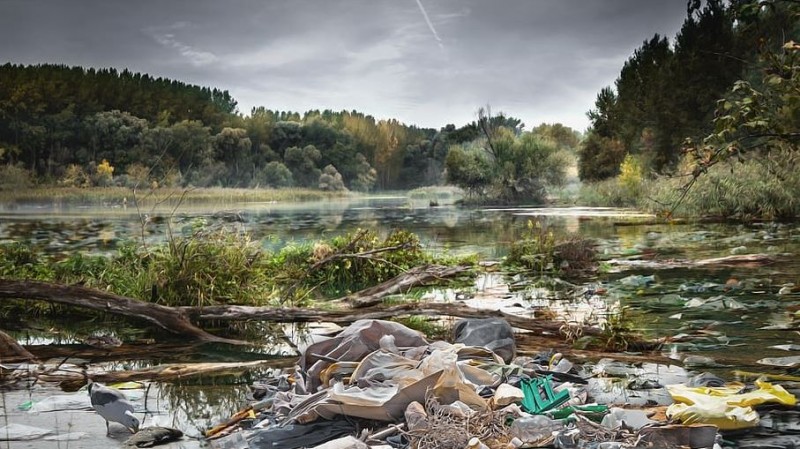
Plastic pollution has become a global environmental crisis that demands urgent attention. The excessive use of plastic materials has led to severe consequences for our planet, affecting marine life, ecosystems, and even human health. In this article, we will explore the magnitude of the plastic pollution problem and discuss various strategies and solutions to pave the way towards a plastic-free future.
What is Plastic Pollution?
Plastic pollution refers to the accumulation of plastic waste in the environment, especially in oceans, rivers, and landfills. It occurs when plastic materials, primarily single-use plastics, are improperly disposed of, leading to their persistence in the environment for hundreds of years.
The Impact of Plastic Pollution on the Environment
Marine Life and Ocean Ecosystems
Plastic waste in the oceans poses a significant threat to marine life. Sea animals often mistake plastic debris for food, leading to ingestion and entanglement. This results in injury, suffocation, and sometimes death of marine creatures.
Land and Terrestrial Wildlife
Plastic pollution also affects terrestrial wildlife. Animals may ingest or get entangled in plastic waste, leading to severe consequences for their health and survival.
Human Health
Apart from harming wildlife, plastic pollution can also impact human health. Microplastics, tiny plastic particles, have been found in food and water sources, raising concerns about their potential health risks.
Causes of Plastic Pollution
Single-Use Plastics
The proliferation of single-use plastics, such as plastic bags, straws, and bottles, contributes significantly to plastic pollution.
Improper Waste Disposal
Inadequate waste management and improper disposal of plastics lead to their accumulation in the environment.
Microplastics
Microplastics are tiny plastic particles that result from the breakdown of larger plastic items and cosmetic products.
Recycling and Circular Economy
Importance of Recycling
Recycling plays a crucial role in reducing plastic pollution by diverting plastic waste from landfills and oceans.
Challenges in Plastic Recycling
However, there are challenges in recycling certain types of plastics due to their composition and contamination.
Transitioning to a Circular Economy
Transitioning to a circular economy, where products are designed for recycling and reuse, can help tackle the plastic pollution problem.
Reduce, Reuse, and Refuse
Minimizing Single-Use Plastics
Individuals can contribute to a plastic-free future by reducing their consumption of single-use plastics.
Embracing Reusable Alternatives
Using reusable alternatives like stainless steel water bottles and cloth bags can significantly reduce plastic waste.
Saying No to Unnecessary Plastic
Refusing unnecessary plastic items and packaging can help curb the demand for single-use plastics.
Innovative Biodegradable Materials
Advancements in Bioplastics
Bioplastics, made from renewable sources, are emerging as a more sustainable alternative to traditional plastics.
Biodegradable Packaging Solutions
Biodegradable packaging materials can break down naturally, reducing their impact on the environment.
Extended Producer Responsibility (EPR)
Holding Manufacturers Accountable
Implementing EPR policies requires manufacturers to take responsibility for the entire lifecycle of their products, including recycling and proper disposal.
Designing Sustainable Products
Manufacturers can design products with sustainability in mind to reduce their environmental impact.
Government Regulations and Policies
Bans on Single-Use Plastics
Several countries and cities have introduced bans on certain single-use plastics to address plastic pollution.
Extended Producer Responsibility Laws
EPR laws are being adopted by governments to encourage manufacturers to adopt more sustainable practices.
Plastic Recycling Mandates
Mandatory plastic recycling programs incentivize proper waste management and recycling.
Public Awareness and Education
Advocacy for Plastic-Free Living
Raising public awareness about the consequences of plastic pollution can drive behavioral change.
School and Community Initiatives
Educational programs and community initiatives can engage people in the fight against plastic pollution.
Corporate Responsibility
Sustainable Practices for Businesses
Businesses can adopt sustainable practices and reduce their reliance on single-use plastics.
Encouraging Eco-Friendly Packaging
Supporting companies with eco-friendly packaging can influence the market towards sustainability.
Technological Innovations
Plastic-Eating Enzymes
Researchers are exploring enzymes that can break down plastic waste effectively.
Ocean Cleanup Technologies
Innovative technologies are being developed to remove plastic debris from oceans.
Plastic-Free Lifestyle Tips
Simple Steps for Individuals
Small lifestyle changes, such as using a reusable water bottle, can make a significant impact.
Reducing Plastic Footprint
Collective efforts to reduce plastic use can lead to a positive change for the environment.
Collaboration and Partnerships
NGOs and Environmental Organizations
Collaboration between NGOs and other stakeholders can amplify the impact of plastic pollution solutions.
Public-Private Collaborations
Engaging the private sector in plastic pollution initiatives can drive innovation and resources.
Challenges and Roadblocks
Economic Implications
Transitioning to a plastic-free future may have economic implications for certain industries.
Behavioral Change
Changing consumer behavior and habits may present challenges in reducing plastic use.
Plastic pollution is a critical issue that requires collective action from individuals, businesses, governments, and organizations. By implementing strategies like recycling, reducing single-use plastics, and promoting sustainable alternatives, we can work towards a plastic-free future, preserving our environment for generations to come.
Govt Action Looms for Twitter after Viral Video of Manipur Women Paraded Naked
Manipur Unrest: CM Urges Thorough Probe into Viral Video's Authenticity
Sonia Gandhi Urges PM Modi for Manipur Discussion in Parliament